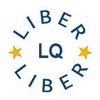Opening Science with Institutional Repository
A Case Study of Vilnius University Library
DOI:
https://doi.org/10.18352/lq.10217Keywords:
cooperation, metrics, national repository, university libraries, open scienceAbstract
The future strategies for opening science have become important to libraries which serve scientific institutions by providing institutional repository infrastructures and services. Vilnius University Library provides such an infrastructure for Vilnius University, which is the biggest higher education institution in Lithuania (with more than 20,200 students, 1,330 academic staff members, and 450 researchers ), and manages services and infrastructure of the national open access repository eLABa and the national open access data archive MIDAS. As the new platforms of these repositories began operating in the beginning of 2015, new policies and routines for organizing work with scientific publications and data had to be implemented. This meant new roles for the Library and librarians, too. The University Senate approved the new Regulations of the Library on 13 June 2017 with the task to develop the scholarly communication tools dedicated to sustaining open access to information and open science. Thus, Vilnius University Library performs the leading role in opening science by providing strategic insights and solutions for development of services dedicated to researchers, students and the public in Lithuania. As it was not presented properly at the international level before, this article presents the case of Vilnius University Library which actively cooperates with other Lithuanian academic institutions, works in creating and coordinating policies, conducts research on the improvements and services of eLABa and MIDAS, and suggests and implements the integral solutions for opening science.Downloads
Download data is not yet available.

Downloads
Published
2018-10-10
Issue
Section
Case studies
How to Cite
Kuprienė, J., & Petrauskienė, Žibutė. (2018). Opening Science with Institutional Repository: A Case Study of Vilnius University Library. LIBER Quarterly: The Journal of the Association of European Research Libraries, 28(1), 1-24. https://doi.org/10.18352/lq.10217






